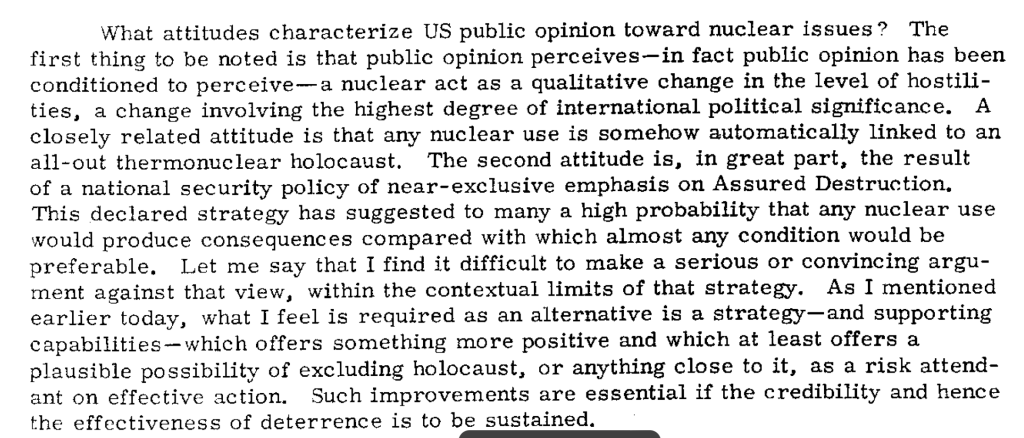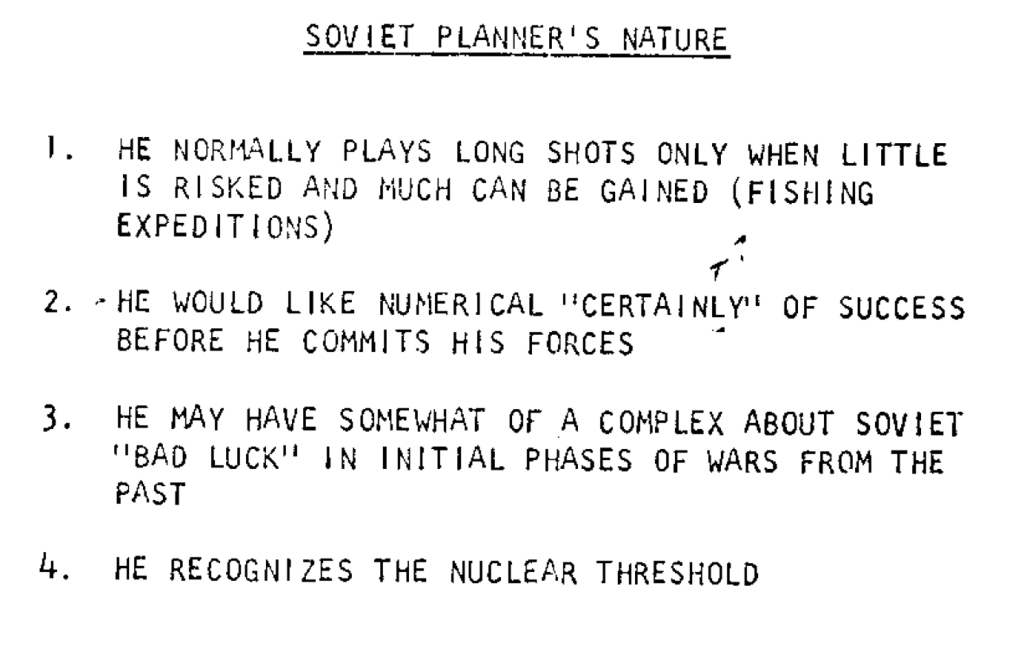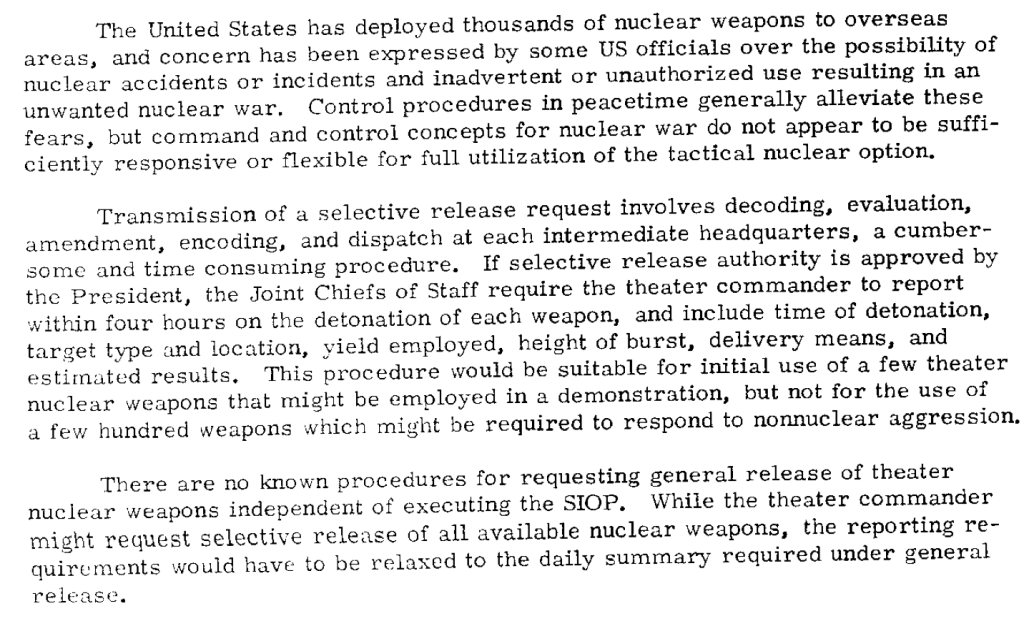The proceedings from that TNW workshop about which I’ve previously posted has this discussion of U.S. public opinion on nuclear weapons use:


The proceedings from that TNW workshop about which I’ve previously posted has this discussion of U.S. public opinion on nuclear weapons use:

Here’s a statement from the Swiss Federal Council on the TPNW:
On the basis of a new comprehensive reassessment, the Federal Council decided at its meeting on 27 March 2024, that there is currently no reason to change its position on the Treaty on the Prohibition of Nuclear Weapons (TPNW), which entered into force in 2021. It has therefore reaffirmed the conclusion it reached in 2018 and 2019 and has decided that Switzerland will not join the TPNW for the time being. The Federal Council’s conclusion is based both on the assessment made in 2018–19 and recent security policy developments in Europe and globally. The Federal Council considers Switzerland’s commitment to a world without nuclear weapons, pursued within the framework of the Nuclear Non-Proliferation Treaty (NPT), to be a more effective approach.
This BAS piece by James Revill has a good summary of the issue, along with hyperlinks to many of the most recent relevant documents.
Discussion of BWC verification is a pretty big deal.
More from the 1969 proceedings:

New Delhi and Islamabad are inclined to sustain the current fragile calm in their relationship following their renewal of a cease-fire along the Line of Control in early 2021. However, neither side has used this period of calm to rebuild their bilateral ties as each government has focused on more pressing domestic priorities including election perpetrations and campaigning and for Pakistan, concerns over rising militant attacks in its west. Pakistan’s long history of supporting anti-India militant groups and India’s increased willingness, under the leadership of Prime Minister Narendra Modi, to respond with military force to perceived or real Pakistani provocations raise the risk of escalation during a crisis. There remains the potential for an event to trigger a rapid escalation….heightened tension between Pakistan and India could increase the risk of nuclear escalation.
The 1969 proceedings of a DOD/AEC symposium contain this description of release procedures concerning TNW use:

Been on a bit of a break. Following up on this post about the British nuclear deterrent, I present this exchange in Parliament between MP Neale Hanvey and Minister for Defence Procurement James Cartlidge:
Hanvey: I thank the Minister for unexpectedly allowing an intervention. He says that he is working with the US, but the reality is that the US controls the nuclear deterrent that the UK provides.
Cartlidge:
That is wholly erroneous. Yes, we have a very, very close working relationship with the United States. We recently celebrated the 60th anniversary of the Polaris agreement. With the United States we secured the freedom of Europe in the second world war, and with the United States we are continuing to secure the freedom of our United Kingdom by deterring the most significant threat that we could face.
I emphasise that while we continue to invest in our nuclear deterrent, the Government remain fully committed to the long-term goal of a world without nuclear weapons. As a country, we have a strong record on disarmament, having unilaterally reduced our nuclear forces significantly from their cold war peak. We now have the smallest nuclear warhead stockpile of the five nuclear weapons states recognised under the non-proliferation treaty, and we are the only state to have reduced its deterrent capability to a single nuclear weapons system. However, other states have not followed our example, and as we survey the dangers facing our world today, our assessment is that further unilateral disarmament would only undermine our security and that of our allies. Nevertheless, we will continue to see opportunities to advance multilateral disarmament under the framework of the non-proliferation treaty.
Our nuclear deterrent deters aggression and coercion and helps to preserve peace.